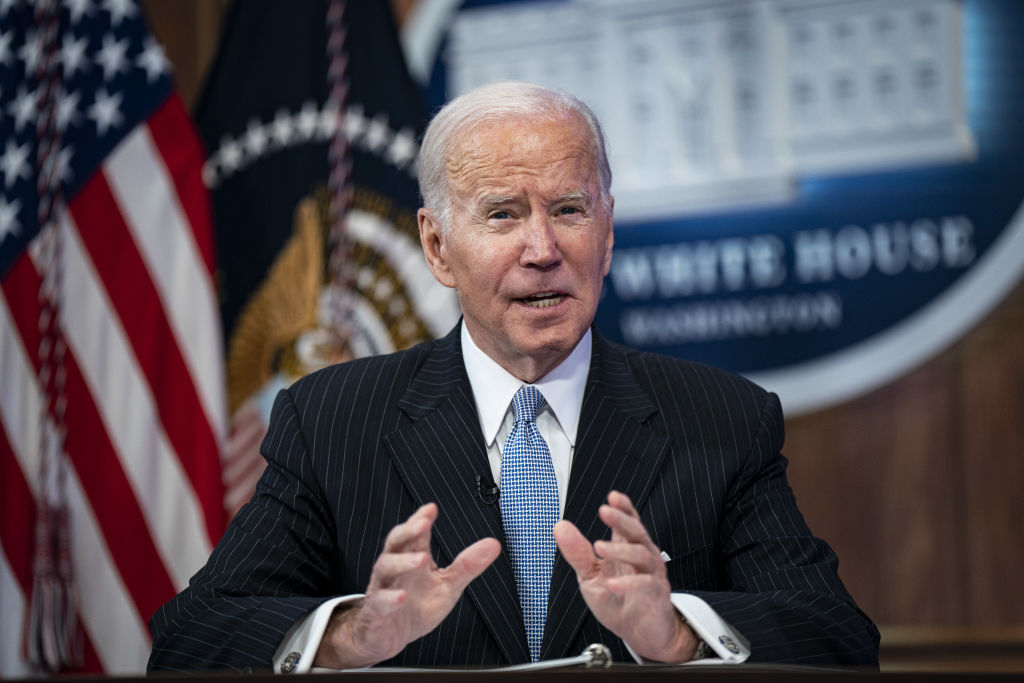Biden Extends Pause on Federal Student Loan Payments Amid Legal Fight Over Debt-Relief Plan
 Credit: Al Drago / Bloomberg / Getty Images
Credit: Al Drago / Bloomberg / Getty Images- Most borrowers haven’t needed to make payments since March 2020.
- The move comes amid court battles over the president’s debt forgiveness, which appears destined for the U.S. Supreme Court.
- Without a clear timeline for resolving those court cases, the administration once again extended the pause.
President Joe Biden and the Department of Education (ED) have again extended the pause on federal student loan debt payments, this time until July 1, 2023.
It marks the seventh extension of the payment pause since former President Donald Trump instituted it in March 2020, as the COVID-19 pandemic rippled through the U.S.
The motivation for this latest extension, however, has less to do with the pandemic.
Biden is buying time until his administration resolves legal challenges to his proposed debt cancellation plan, which would discharge up to $20,000 in federal student loan debt per borrower making less than $125,000 per year.
“I’m completely confident my plan is legal. But right now it’s on hold because of these lawsuits,” Biden said in a video announcing the extension. “We’re not going to back down, though, on our fight to give families breathing room.”
He added that the Department of Justice has asked the U.S. Supreme Court to rule on his debt relief program during its current session.
— President Biden (@POTUS) November 22, 2022I'm confident that our student debt relief plan is legal. But it’s on hold because Republican officials want to block it.
That's why @SecCardona is extending the payment pause to no later than June 30, 2023, giving the Supreme Court time to hear the case in its current term. pic.twitter.com/873CurlHFZ
The pause, which was previously set to expire on Jan. 1, 2023, stops borrowers from having to make payments on debt that may eventually be discharged. Payments must resume within 60 days of the pause’s end, Biden said.
Legal Challenges Hold Up Student Debt Forgiveness
There have been a half-dozen high-profile challenges to Biden’s student debt forgiveness plan, and rulings in two of those cases have prevented the administration from actually erasing any student debt.
The most significant suit came from the attorneys general of six Republican-controlled states. The joint lawsuit involving Arkansas, Iowa, Kansas, Missouri, Nebraska, and South Carolina was thrown out by a district court judge in October, but the 8th U.S. Circuit Court of Appeals on Nov. 14 ruled that at least one of those states had standing to sue.
ED is now looking to the Supreme Court to take up the case and potentially decide the fate of the debt forgiveness program.
Meanwhile, a conservative advocacy group, the Job Creators Network Foundation (JCNF), filed a suit in October in a district court in Texas. The judge in that case vacated the forgiveness plan on Nov. 10, leaving ED unable to implement the program.
The Department of Justice quickly appealed that decision to the conservative-leaning 5th Circuit Court of Appeals, opening another potential pathway for the case to be heard in the Supreme Court.
ED is continuing to process applications and sending approved ones to a borrower’s loan servicer. However, it closed the application process on Nov. 11, shortly after the Texas court ruling.
The department at that time said that 26 million borrowers had applied for debt cancellation and that 16 million applications have already been approved and sent to loan servicers to be discharged if and when the courts allow it.